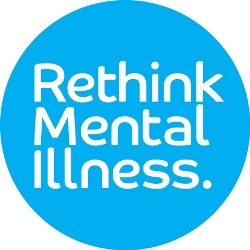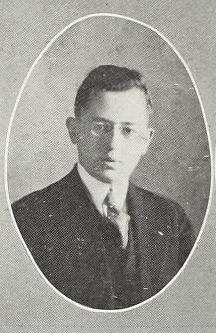Schizoaffective disorder is a mental disorder characterized by abnormal thought processes and an unstable mood. This diagnosis requires symptoms of both schizophrenia and a mood disorder: either bipolar disorder or depression. The main criterion is the presence of psychotic symptoms for at least two weeks without any mood symptoms. Schizoaffective disorder can often be misdiagnosed when the correct diagnosis may be psychotic depression, bipolar I disorder, schizophreniform disorder, or schizophrenia. This is a problem as treatment and prognosis differ greatly for most of these diagnoses.
Edwin Fuller Torrey, is an American psychiatrist and schizophrenia researcher. He is associate director of research at the Stanley Medical Research Institute (SMRI) and founder of the Treatment Advocacy Center (TAC), a nonprofit organization whose principal activity is promoting the passage and implementation of outpatient commitment laws and civil commitment laws and standards in individual states that allow people diagnosed with mental illness to be forcibly committed and medicated easily throughout the United States.

The National Alliance on Mental Illness (NAMI) is a United States-based nonprofit organization originally founded as a grassroots group by family members of people diagnosed with mental illness. NAMI identifies its mission as "providing advocacy, education, support and public awareness so that all individuals and families affected by mental illness can build better lives" and its vision as "a world where all people affected by mental illness live healthy, fulfilling lives supported by a community that cares". NAMI offers classes and trainings for people living with mental illnesses, their families, community members, and professionals, including what is termed psychoeducation, or education about mental illness. NAMI holds regular events which combine fundraising for the organization and education, including Mental Illness Awareness Week and NAMIWalks.
The Treatment Advocacy Center (TAC) is a U.S. non-profit organization based in Arlington, Virginia, originally announced as the NAMI Treatment Action Centre in 1997. The TAC was subsequently directed by psychiatrist E. Fuller Torrey and identifies its mission as "dedicated to eliminating barriers to the timely and effective treatment of severe mental illness". The organization is most well-known for proposed laws, policies, and practices regarding legally compelled outpatient services or outpatient commitment for people diagnosed with mental illness. The organization identifies its other key issues as "anosognosia, consequences of non-treatment, criminalization of mental illness, psychiatric bed shortages, public service costs, violence and mental illness". Advocates for mental health have criticized TAC for endorsing coercion and forced treatment.

Rethink Mental Illness improves the lives of people severely affected by mental illness through their networks of local groups and services, information and campaigns. Their goal is to make sure everyone severely affected by mental illness has a good quality of life .
A spectrum disorder is a mental disorder that includes a range of linked conditions, sometimes also extending to include singular symptoms and traits. The different elements of a spectrum either have a similar appearance or are thought to be caused by the same underlying mechanism. In either case, a spectrum approach is taken because there appears to be "not a unitary disorder but rather a syndrome composed of subgroups". The spectrum may represent a range of severity, comprising relatively "severe" mental disorders through to relatively "mild and nonclinical deficits".

Neurotics Anonymous (N/A), founded in 1964, is a twelve-step program for recovery from mental and emotional illness. To avoid confusion with Narcotics Anonymous (NA), Neurotics Anonymous is abbreviated N/A or NAIL.
Experience Focussed Counselling (EFC) is a normalising, non-pathologizing approach to counselling or psychosocial support/accompaniment aimed particularly, but not exclusively, at persons who may be distressed by experiences such as hearing voices aka auditory hallucinations, visions or other phenomena which are commonly associated with diagnoses such as schizophrenia and other mental disorders.(Schnackenberg & Burr, 2017)
Self-help groups for mental health are voluntary associations of people who share a common desire to overcome mental illness or otherwise increase their level of cognitive or emotional wellbeing. Despite the different approaches, many of the psychosocial processes in the groups are the same. Self-help groups have had varying relationships with mental health professionals. Due to the nature of these groups, self-help groups can help defray the costs of mental health treatment and implementation into the existing mental health system could help provide treatment to a greater number of the mentally ill population.
Mental Illness Awareness Week (MIAW) was established in the U.S. in 1990 recognition of efforts by the National Alliance on Mental Illness (NAMI) to educate and increase awareness about mental illness. It takes place every year during the first full week of October. During this week, mental health advocates and organizations across the U.S. join to sponsor events to promote community outreach and public education concerning mental illnesses such as major depressive disorder, bipolar disorder, and schizophrenia. Examples of activities held during the week include art/music events, educational sessions provided by healthcare professionals and individuals with lived experience and/or familial lived experience, advertising campaigns, health fairs, prayer services, movie nights, candlelight vigils, and benefit runs.

Mental health literacy has been defined as "knowledge and beliefs about mental disorders which aid their recognition, management and prevention. Mental health literacy includes the ability to recognize specific disorders; knowing how to seek mental health information; knowledge of risk factors and causes, of self-treatments, and of professional help available; and attitudes that promote recognition and appropriate help-seeking". The concept of mental health literacy was derived from health literacy, which aims to increase patient knowledge about physical health, illnesses, and treatments.
Elyn R. Saks is associate dean and Orrin B. Evans Professor of Law, Psychology, and Psychiatry and the Behavioral Sciences at the University of Southern California Gould Law School, an expert in mental health law, and a MacArthur Foundation Fellowship winner. Saks lives with schizophrenia and has written about her experience with the illness in her award-winning best-selling autobiography, The Center Cannot Hold, published by Hyperion Books in 2007. She is also a cancer survivor.
Post-schizophrenic depression is a "depressive episode arising in the aftermath of a schizophrenic illness where some low-level schizophrenic symptoms may still be present." Someone that has post-schizophrenic depression experiences both symptoms of depression and can also continue showing mild symptoms of schizophrenia. Unfortunately, depression is a common symptom found in patients with schizophrenia and can fly under the radar for years before others become aware of its presence in a patient. However, very little research has been done on the subject, meaning there are few answers to how it should be systematically diagnosed, treated, or what course the illness will take. Some scientists would entirely deny the existence of post-schizophrenic depression, insisting it is a phase in schizophrenia as a whole. As of late, post-schizophrenic depression has become officially recognized as a syndrome and is considered a sub-type of schizophrenia.
Social constructionism, a branch of sociology, queries commonly held views on the nature of reality, touching on themes of normality and abnormality within the context of power and oppression in societal structures.
On October 7, 2015, a national action day was observed, National Helping Families in Mental Health Crisis Day. It arose based on a bill in the House of Representatives of the 114th Congress called [http://mentalhealthcrisisday.com/hr2646.html The Helping Families in [[Mental Health]] Crisis Act of 2015, HR2646]]. The bill was originally introduced as The Helping Families of Mental Health Crisis Act of 2013, HR3717. HR2646 contains a number of provisions that will serve to reform mental health care for those Americans with serious mental illness. The national day of observance, which was noted in National Review and has been endorsed by National Alliance on Mental Illness (NAMI) will occur in early October each year to raise awareness and encourage action on mental health care policy.
Numerous studies around the world have found a relationship between socioeconomic status and mental health. There are higher rates of mental illness in groups with lower socioeconomic status (SES), but there is no clear consensus on the exact causative factors. The two principal models that attempt to explain this relationship are the social causation theory, which posits that socioeconomic inequality causes stress that gives rise to mental illness, and the downward drift approach, which assumes that people predisposed to mental illness are reduced in socioeconomic status as a result of the illness. Most literature on these concepts dates back to the mid-1990s and leans heavily towards the social causation model.

Jacob Sergi Kasanin (1897-1946) was a Russian born, American trained psychiatrist who introduced the term acute schizoaffective psychoses in 1933. He was known as Yasha to those close to him. He was born in Slavgorod, on 11 May 1897, and moved to the United States in 1915. He graduated from the University of Michigan with a Bachelor of Science in 1919, Doctor of Medicine in 1921 and a Master of Science in Public health in 1926.

The Manic Monologues is a play developed and premiered by Zachary Burton and Elisa Hofmeister at Stanford University. The play consists of autobiographical accounts of mental illness from people diagnosed with mental health disorders, the family and friends of mental health patients, and health professionals. The play explores diagnoses including bipolar, schizophrenia, depression, OCD, and PTSD in stories that are by turns tragic, humorous, and uplifting.





